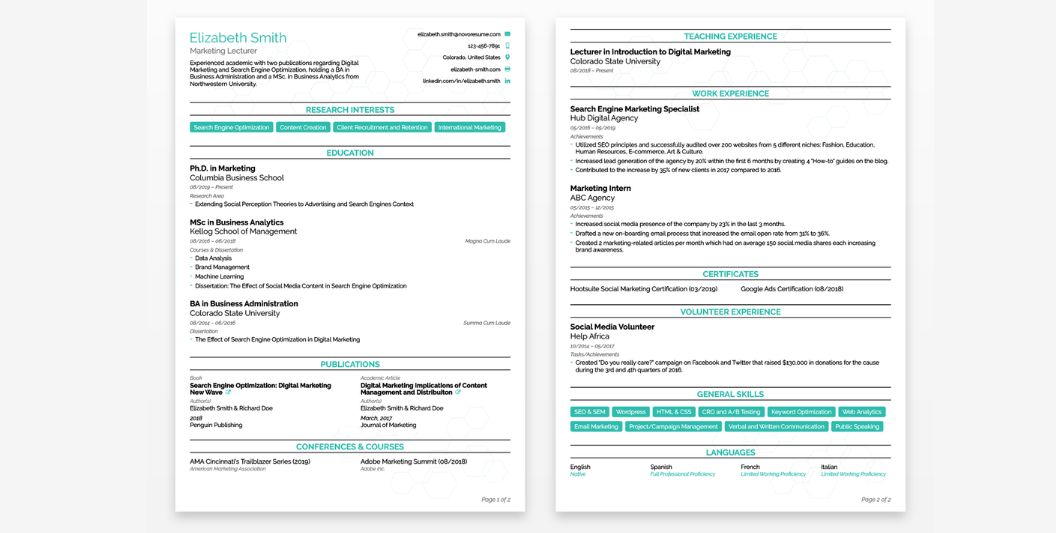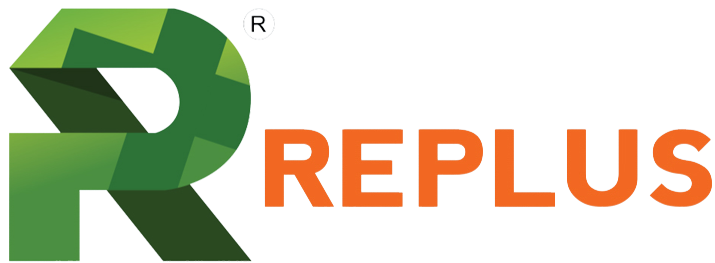What is CV?

A CV (Curriculum Vitae) is a detailed and comprehensive document about an individual’s education, work experience, and achievements. Typically, CVs are used in European and African countries, where writers must provide detailed information about their backgrounds and abilities. CVs can be long and thorough, often including education, work experience, research, and professional activities
Parts of a CV
A CV will include the following basic parts:
Contact details
Include your full name, current address or email address, contact phone number, and social media information if applicable. Make sure this information is up-to-date and accurate. This is the most essential part of your CV because it makes it easy for employers to identify and contact you when necessary.
Academic background
This section of your CV is where you detail your educational achievements and courses related to the field you are pursuing. Include significant degrees (university, college), certificates, and short-term courses you have completed. If so, you can include online courses and in-depth training programs you’ve taken.
Professional experience
This section of your CV is for you to detail the projects, jobs and experiences you have accumulated in your field of expertise. You should describe in detail and specifically the tasks and responsibilities performed, along with achievements and results achieved. For each experience, you should highlight the technical and soft skills you applied and developed during your work experience.
Competencies
This section of your CV should focus on listing and describing in detail the technical and soft skills you possess. These skills help me complete the job effectively and increase credibility and assurance about the value of my contribution to the organization in the future.
Articles and presentations
This section of your CV is a place to list articles, research or presentations you have made. Articles and research published in scientific journals related to the field you are applying for. In addition, if you have participated in presentations at specialized events, with presentations on specific topics, please include them in your CV. These activities reflect expertise in the field and affirm professional writing and presentation skills, contributing to professional development and commitment to a career.
Honors and achievements
These are achievements that have contributed significantly to the development and confirmation of your professional capacity. These achievements are a testament to your personal efforts and success and recognition by the professional community of your positive contributions. This also demonstrates your commitment to your career and your desire to contribute to the future success of your organization.
Australian CV Template
Below is the commonly used Australian CV Template.

What is Resume?
A resume is a document that briefly summarizes an individual’s personal background, work experience, and skills. Widely used in the United States and Canada, resumes focus on practical skills and work experience directly related to the position applied for. Resumes are usually shorter than CVs and are suitable for sending when applying for job positions.

Parts of Resume
The components of a resume vs CV will have similarities but also differ in some elements.
Personal details
The personal information section of a resume provides details such as full name, address, phone number, and email address. This is essential information to help employers quickly contact you when necessary. Additional information, such as social networks or personal websites, can be added if appropriate. Ensure this information is up-to-date and accurate to increase the professionalism and credibility of your resume.
Career Goals and Overview
The career goals or personal overview section helps employers better understand your career goals. You can describe your critical skills, passions and what you want to contribute to the organization. A clear and relevant objective will help highlight your profile and guide your career development.
Academic background

The educational background section lists details about the degrees, certificates, and courses you have completed. Include names of universities, majors, and graduation years. This is your educational basis and helps employers evaluate your suitability for the position.
Employment history
The employment history section details previous work experiences, including company name, position, length of employment, and key responsibilities. Describe your achievements and skills developed in each role to demonstrate your abilities and experience.
Abilities
The competencies section lists your technical and soft skills, including management skills, communication, teamwork and problem-solving abilities. These skills are essential to help you succeed at work and stick with the organization.
Honors and accolades
The honors and achievements section highlights notable awards or achievements you’ve earned in your field. This is a testament to your efforts and success and your ability to contribute positively to your work and professional community.
Charitable work
The charity work section describes the charitable activities or social projects you have participated in. Provide information about the charity organization or event, your role and the impact these activities have on the community. Participating in charitable activities shows your ethical character and commitment to serving the community.
Resume Examples Australia
Certain countries like Australia, India, and South Africa accept CVs and Resumes for both purposes. Below are the most commonly used examples of an Australian resume.

The key difference between CV and Resume
CV vs Resume are two types of documents used in the job application process but have different purposes and formats. Below are the most recognizable differences between these two types of documents.
Length
CVs are typically longer, covering multiple pages to detail extensive academic and professional achievements. Resumes are usually shorter, only one to two pages, focusing on relevant skills and experience.
Granularity
CVs have a higher level of detail, providing precise and detailed information about educational and professional achievements. Resumes have a lower level of detail, focusing only on the information necessary to match job requirements.
Intended use

CVs are often used for academic and research positions that require a detailed background. Resumes are designed to apply to business positions, focusing on specific job requirements and career goals.
Core information
Your CV includes a detailed list of your education, research activities, publications and presentations. Resume highlights skills, work experience, key achievements and relevant professional affiliations.
Presentation and layout
CVs follow a systematic structure with detailed sections, chronological emphasis and thorough information. Resumes use a cleaner and more organized layout, often using bullet points to highlight key achievements and skills quickly.
When Should You Use a CV?
Below are cases where you should use your CV to apply.
Apply for academic, educational, or research positions
CV is essential when applying to universities, research agencies, or teaching positions. It helps you comprehensively detail your educational background, research achievements, teaching experience, and scholarly achievements.
Apply for grants or scholarships

When you need to sponsor research projects or international scholarship programs, your CV helps you describe your research abilities, academic achievements and future research plans in detail. Funding organizations and scholarship committees use your CV to significantly evaluate your ability to contribute to the educational field.
Apply for jobs outside the US, especially in Europe, Asia, and the Middle East
A CV is the standard document for applying for a job in many countries outside the United States, especially Europe, Asia and the Middle East. It focuses on detailed information about your work experience, education, skills, and professional achievements, which align with international standards and the specific requirements of employers across industries.
When should you use a resume?
Unlike CV, Resume should be used for the specific cases below.
Apply to most private sector jobs in the US and Canada
Resumes are popular documents for positions in private companies, small and medium-sized businesses, and non-profit organizations in the US and Canada. It focuses on an overview of skills and work experience, helping employers quickly assess your suitability for the position you applied for.
Jobs require a brief summary of skills and experience

Resumes are designed to briefly present your critical skills, work experience, and outstanding achievements, consistent with the brief and concise application requirements.
Formatting advice for CVs vs Resumes
Below are some tips on how to format your CV and Resume to help you stand out and appear professional to employers when applying.
Professional layout
Make sure your CV vs Resume have a clear and professional layout. Use simple but effective formats to make it easy for employers to read and find important information.
Consistent formatting and fonts

Always maintain consistent formatting and fonts across the entire document. Using appropriate and not too-complicated fonts will increase the professionalism of your CV and Resume.
Use headings and subheadings
Use headings and subheadings to categorize information and highlight important sections such as education, work experience, technical skills and achievements.
Common errors to steer clear of
Below are some common mistakes that you should avoid when writing your CV and resume to avoid losing points in the eyes of employers.
Adding unnecessary details
Avoid including details in your cv vs resume that are not related to the position you are applying for. This can take away the employer’s focus and obscure other important information.
Using a generic vs resume for every application

Each position applied for has unique requirements for skills and experience. Using a generic template may reduce personalization and not fully reflect your abilities.
Inadequate formatting and arrangement
CVs and Resumes should have a clear, professional format and layout to make it easy to read and find information. Avoid using overly complicated fonts or inconsistent formatting, which can take away from the professionalism of the document.
Above are the important differences between CV vs resume. Each type of document is suitable for different application purposes. Choose the document that fits your needs and career goals to increase your chances of success in your job application.


